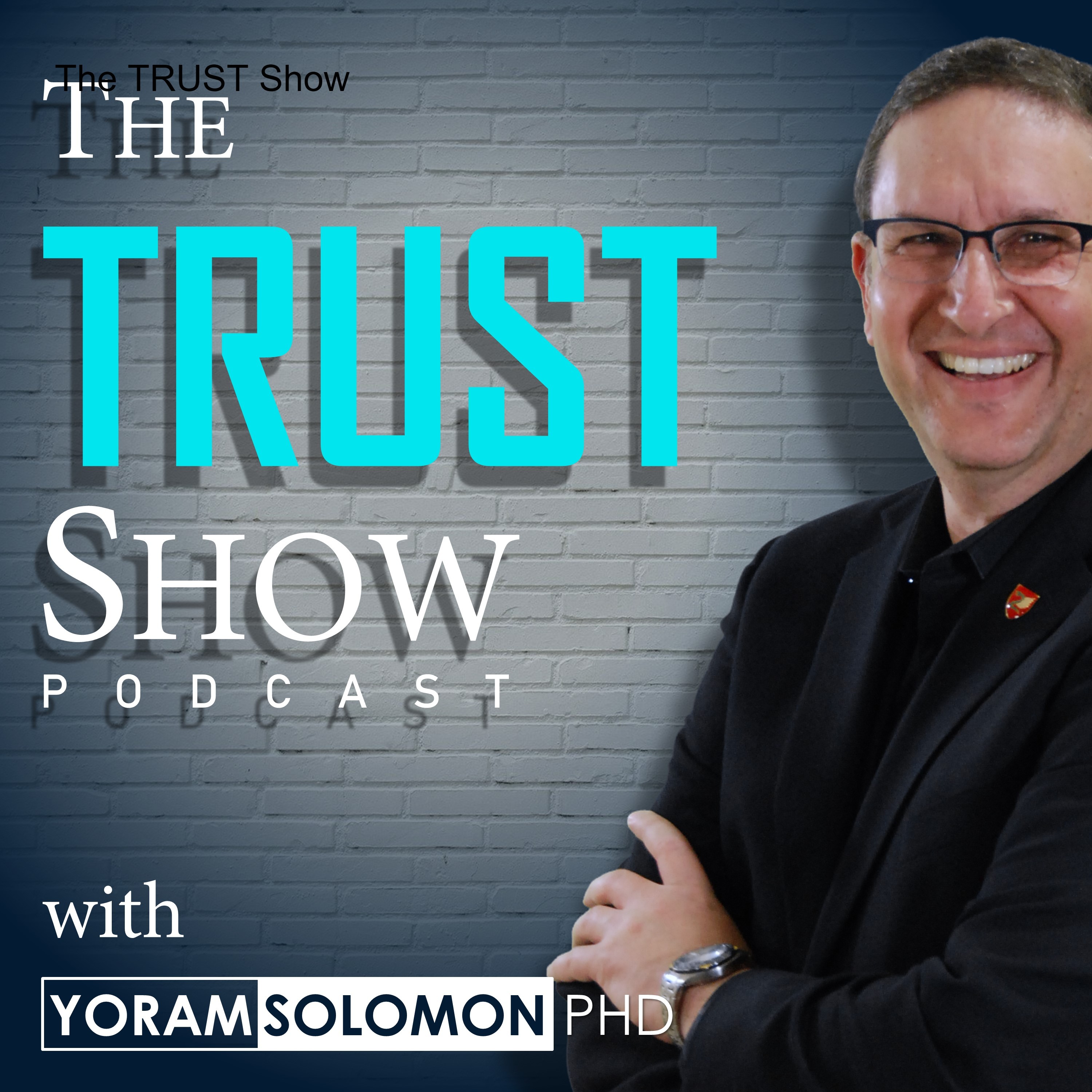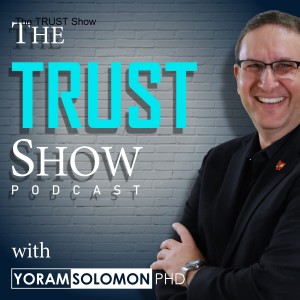
14.5K
Downloads
173
Episodes
Trust is not what you think it is. It is not absolute or universal. Trust is relative. The same behavior that would cause one person to trust you could cause another person to distrust you. The level of trust someone has in you is the product of their trustfulness (their willingness to trust other people) and your trustworthiness. There is almost (I said ALMOST) nothing you can do about the former, and everything you can do about the latter. Because of that, you must evaluate your own trustworthiness one relationship at a time, separately. Odds are, though, that the same behaviors that are holding you back from being more trusted in one relationship are holding you back from being more trusted in other relationships. Welcome to The Trust Show. I’m your host, Yoram Solomon, a top 10 trust expert and researcher, the author of the book of trust, and the creator of the Trust Habits® workshop that helps people and organizations form new habits that change old behaviors, build trust, and transform organizations. In this educational podcast, I will challenge you to think differently about trust, through the 8 laws of trust and the 6 components of trustworthiness. I will share my own stories, experiences of others, trust research, and sometimes, reflect on a news item. And through those, I will show you how to build trust, be trusted, and know who to trust. Because the answer to this question will have the biggest impact on your personal and professional, success or failure: can you be trusted?
Episodes

Sunday Jan 02, 2022
S4E1: Is Procrastination Good or Bad?
Sunday Jan 02, 2022
Sunday Jan 02, 2022
A very famous speaker was procrastinating until the last minute on writing his speech. In fact, he went on stage without the entire speech. He was a procrastinator. Then, on stage, he added four more words to it. He decided to start with the words: "I have a dream..."
We typically look at procrastination in a negative context. But, is it all bad? In this episode, I will first show both the negative and positive aspects of procrastination. I will also give you some advice as to how to decide whether to procrastinate or not.
But the most important part is that I will show you how to determine whether you should trust a procrastinator or not and whether you should be trusted based on your procrastination profile. That decision will be based on the Personality Compatibility component of trustworthiness, and will be explained through the lens of the first four laws of trust, namely that trust is relative.

Comments (0)
To leave or reply to comments, please download free Podbean or
No Comments
To leave or reply to comments,
please download free Podbean App.